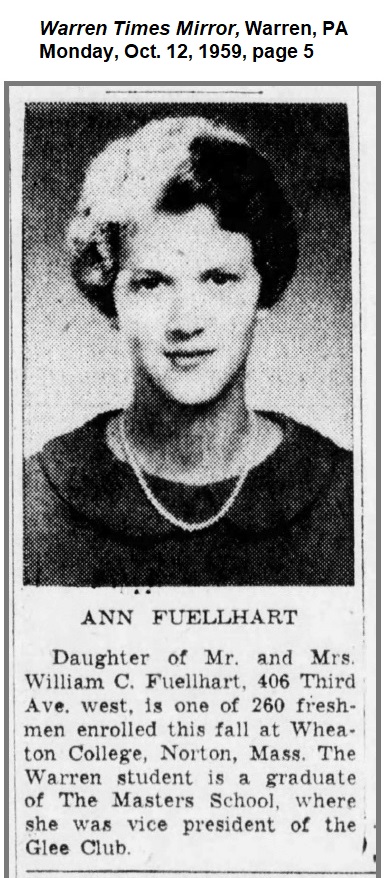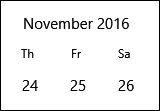
Friday, November 17, 2023
Schoolgirl Problem: Not Queen of the Desert
Friday, April 16, 2021
Schoolgirl Problem (Kirkman’s, not Epstein’s)
Thursday, November 19, 2020
Set Design and the Schoolgirl Problem
Sunday, July 7, 2019
Schoolgirl Problem
Anonymous remarks on the schoolgirl problem at Wikipedia —
"This solution has a geometric interpretation in connection with
Galois geometry and PG(3,2). Take a tetrahedron and label its
vertices as 0001, 0010, 0100 and 1000. Label its six edge centers
as the XOR of the vertices of that edge. Label the four face centers
as the XOR of the three vertices of that face, and the body center
gets the label 1111. Then the 35 triads of the XOR solution correspond
exactly to the 35 lines of PG(3,2). Each day corresponds to a spread
and each week to a packing."
See also Polster + Tetrahedron in this journal.
There is a different "geometric interpretation in connection with
Galois geometry and PG(3,2)" that uses a square model rather
than a tetrahedral model. The square model of PG(3,2) last
appeared in the schoolgirl-problem article on Feb. 11, 2017, just
before a revision that removed it.
Saturday, August 25, 2018
Schoolgirl Problem
Sunday, July 15, 2018
Schoolgirl Problems
A Warren, Pennsylvania, newspaper article from May 12, 2018,
“A terrorist among them,” quotes Ann Creal of Warren on
schooldays of the late 1950’s and on a German exchange student,
Gudrun Ensslin, who later became famous for her violent political
activities:
“She said Ensslin dated while here (the man
she identified as Ensslin’s date told the Times Observer
he had no recollection of her).”
I am the man that was identified as Ensslin’s date, and I still
have no recollection of her.
Ann Creal is the former Ann Fuellhart, who was a college freshman
in the fall of 1959, when I was a high school senior —

Ann Creal apparently confused me with Scott Mohr, who
graduated from Warren High School in 1958. See the Log24
posts Crux and Doppelgänger.
Tuesday, November 29, 2016
Thursday, August 4, 2016
Schoolgirl Problems
Compare and contrast the recent films
"The Diary of a Teenage Girl" and "Strangerland."
(This post was suggested by yesterday's
"How Deep the Rabbit Hole Goes.")
Monday, February 22, 2016
Schoolgirl Problems…
and versions of "Both Sides Now"



See a New York Times version of "Both Sides Now."
I prefer a version by Umberto Eco.
Related material for storytellers and the Church of Synchronology —
This journal on the date of the above shooting script, 03/19/15.
Tuesday, September 15, 2015
Schoolgirl Problem
Or: Ten Years and a Day
In memory of film director Robert Wise,
who died ten years ago yesterday.

A search in this journal for "Schoolgirl" ends with a post
from Sept. 10, 2002, The Sound of Hanging Rock.
See as well a Log24 search for "Strangerland"
(a 2015 film about a search for a schoolgirl) and
a Log24 search for "Weaving."
Related mathematics: Symplectic.
Some related images (click to enlarge) —
Friday, August 14, 2015
Schoolgirl Problem
But first, a word from our sponsa* …
Sir Laurence Olivier in "Term of Trial" (1962),
a film starring Sarah Miles as a schoolgirl —

* Bride in Latin. See also "bride's chair,"
a phrase from mathematical pedagogy.
Friday, June 19, 2015
Schoolgirl Problem
Wednesday, February 26, 2025
Red Dot Award
"Cristin Milioti, dressed in custom Dior, chatted with 'Extra’s'
Mona Kosar Abdi on the 2025 SAG Awards red carpet."

From this journal earlier . . .
The Falcone Schoolgirl Problem . . .
"You're very beautiful, dear, but you're no Milioti."
Monday, November 18, 2024
Friday, September 27, 2019
Algebra for Schoolgirls
The 15 points of the finite projective 3-space PG(3,2)
arranged in tetrahedral form:
The letter labels, but not the tetrahedral form,
are from The Axioms of Projective Geometry , by
Alfred North Whitehead (Cambridge U. Press, 1906).
The above space PG(3,2), because of its close association with
Kirkman's schoolgirl problem, might be called "schoolgirl space."
Screen Rant on July 31, 2019:
A Google Search sidebar this morning:
Apocalypse Soon! —
Wednesday, September 18, 2019
Powers of X
Screen Rant on July 31, 2019 —
The above space PG(3,2), because of its close association with
Kirkman's schoolgirl problem, might be called "schoolgirl space."
See as well a Log24 post from the above Screen Rant date —
Saturday, August 10, 2019
Schoolgirl Space* Revisited:
The Square "Inscape" Model of
the Generalized Quadrangle W(2)
Click image to enlarge.
* The title refers to the role of PG (3,2) in Kirkman's schoolgirl problem.
For some backstory, see my post Anticommuting Dirac Matrices as Skew Lines
and, more generally, posts tagged Dirac and Geometry.
Tuesday, April 30, 2019
Heraldry for Walpurgisnacht
Tuesday, January 2, 2018
Debs and Redhead
The above images were suggested in part by the birthdays
on Sept. 21, 2011, of Bill Murray and Stephen King.
More seriously, also in this journal on that date, from a post
titled Symmetric Generation —
Sunday, November 12, 2017
Review
|
Sunday, October 29, 2017
File System… Unlocked
|
See as well Chloë Grace Moretz portraying a schoolgirl problem.
Thursday, November 2, 2017
History of Mathematics for All Souls’ Day
Schoolgirl Problem
"Buy this image" . . . Or not.
Related material from the date of the above photo —
For related drama, see "Child's Play" in this journal.
Thursday, October 12, 2017
Gifted Continues
Related material — See Gifted in this journal.
See as well Tulips.
Yesterday was the International Day of the Girl Child . . .
A related archived Wikipedia article on Kirkman's schoolgirl problem :
See also the previous post— "IPFS Version"— and https://ipfs.io/.
Wednesday, July 5, 2017
Imaginarium of a Different Kind
The title refers to that of the previous post, "The Imaginarium."
In memory of a translator who reportedly died on May 22, 2017,
a passage quoted here on that date —
Related material — A paragraph added on March 15, 2017,
to the Wikipedia article on Galois geometry —
|
George Conwell gave an early demonstration of Galois geometry in 1910 when he characterized a solution of Kirkman's schoolgirl problem as a partition of sets of skew lines in PG(3,2), the three-dimensional projective geometry over the Galois field GF(2).[3] Similar to methods of line geometry in space over a field of characteristic 0, Conwell used Plücker coordinates in PG(5,2) and identified the points representing lines in PG(3,2) as those on the Klein quadric. — User Rgdboer |
Thursday, February 16, 2017
Schoolgirls and Heptads
A Feb. 12 note in the "talk" section of the Wikipedia article
"Kirkman's schoolgirl problem" —

The illustration above was replaced by a new section in the article,
titled "Galois geometry."
The new section improves the article by giving it greater depth.
For related material, see Conwell Heptads in this journal
(or, more generally, Conwell) and a 1985 note citing Conwell's work.
Wednesday, June 1, 2016
Mathematics and Narrative
Principles before Personalities — AA Saying .
Principles —
See Schoolgirl Problem in Wikipedia.
Personalities —
See Alexandra Alter in the May 26 online New York Times :
"With the proliferation of 'girl' titles,
there are signs that the trend may have peaked;
it already seems ripe for parody."
Update of 12:40 PM ET on Wednesday, June 1, 2016 —
A note for the Church of Synchronology …
See a post from this journal on the date of the Alter piece, May 26:
(Click image for the rest of the post .)
Monday, May 30, 2016
Perfect Universe
(A sequel to the previous post, Perfect Number)
Since antiquity, six has been known as
"the smallest perfect number." The word "perfect"
here means that a number is the sum of its
proper divisors — in the case of six: 1, 2, and 3.
The properties of a six-element set (a "6-set")
divided into three 2-sets and divided into two 3-sets
are those of what Burkard Polster, using the same
adjective in a different sense, has called
"the smallest perfect universe" — PG(3,2), the projective
3-dimensional space over the 2-element Galois field.
A Google search for the phrase "smallest perfect universe"
suggests a turnaround in meaning , if not in finance,
that might please Yahoo CEO Marissa Mayer on her birthday —


The semantic turnaround here in the meaning of "perfect"
is accompanied by a model turnaround in the picture of PG(3,2) as
Polster's tetrahedral model is replaced by Cullinane's square model.
Further background from the previous post —
See also Kirkman's Schoolgirl Problem.



















-embedding-in-PG(3,2)-Planat-Saniga.jpg)














